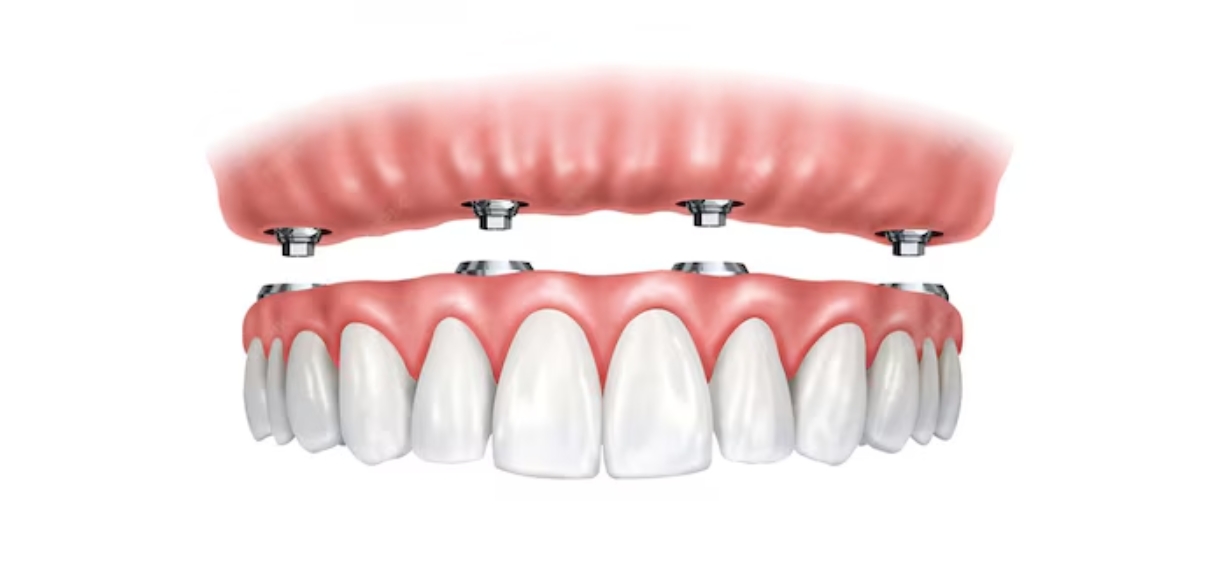
Full mouth reconstruction is a transformative dental procedure designed to restore the function and aesthetics of your teeth. Whether you’ve suffered from severe tooth damage, decay, or other oral health issues, this comprehensive approach can rebuild your smile and improve your quality of life. However, the recovery process plays a significant role in ensuring the procedure’s success. Understanding what to expect during your recovery and how to care for your mouth will help you achieve the best possible results.
What’s Full Mouth Reconstruction?
Full mouth reconstruction is a customized treatment plan that combines multiple dental procedures to restore or replace damaged or missing teeth. These procedures often include dental implants, crowns, bridges, veneers, and sometimes gum treatments. The process can span several months, depending on your specific needs. It aims to improve your mouth’s functionality and appearance, allowing you to eat, speak, and smile confidently once again.
Immediate Post-Surgery Expectations
After undergoing full mouth reconstruction, expect to experience some discomfort. This could include swelling, bruising, and mild bleeding, especially if you’ve had extensive work like dental implants placed. These symptoms are normal and should subside within a few days. Your dentist will likely prescribe pain management options to help you through the initial healing phase. Ice packs can be your best friend during this period, as they help reduce swelling and discomfort.
Managing Pain and Swelling
Pain and swelling are common after any surgical procedure. However, the intensity can vary depending on the complexity of the reconstruction. Mild to moderate pain should generally be expected for a few days. Over-the-counter pain medications such as ibuprofen or those prescribed by your dentist can help alleviate discomfort. Swelling typically peaks within the first 48 hours but should start to subside after that. To minimize swelling, continue applying ice packs in intervals during the first few days. If swelling persists or worsens, be sure to contact your dentist.
Diet and Eating After Full Mouth Reconstruction
You must follow a soft diet for the first few days following surgery. This helps minimize strain on your healing teeth and gums while promoting comfort. Avoid hot or spicy foods, as these can irritate the surgical sites. Stick to liquids or soft foods like mashed potatoes, yogurt, smoothies, and soup during the initial recovery phase. As your mouth heals, your dentist will guide you on when to return to your regular diet.
Oral Hygiene During Recovery
Maintaining oral hygiene is critical during the recovery process. However, you’ll need to be extra gentle when brushing your teeth, especially around surgical sites. Your dentist will provide specific instructions on how to clean your mouth without irritating or disturbing the healing process. You may need to use a soft-bristled toothbrush and avoid brushing the surgical areas for the first few days. Saltwater rinses can be a gentle and effective way to clean your mouth without causing harm.
Follow-Up Appointments and Adjustments
Post-operative care doesn’t end after the surgery. Follow-up appointments with your dentist are essential to monitor your recovery progress. During these visits, your dentist will ensure that everything is healing. Adjustments may be needed to your dental work, mainly if discomfort or issues with bite alignment occur. Attending these appointments and communicating your concerns is essential, no matter how minor they may seem.
Long-Term Care and Maintenance
Once you’ve completed the full mouth reconstruction, long-term care becomes essential for maintaining the results. You must continue practicing excellent oral hygiene habits, including regular brushing, flossing, and using mouthwash. Regular check-ups with your dentist will help keep your dental work in top shape and detect any potential issues early on. With proper care, your full mouth reconstruction can last for many years, giving you a functional and beautiful smile for life.
Recovering from full mouth reconstruction is a process, but with patience and the proper care, the results are worth it. Following the tips outlined above and maintaining your dental health, you’ll soon enjoy the benefits of a restored smile. Contact a dental team for personalized advice and support if you have any concerns or need guidance through your recovery process. Your journey to a healthier, more confident smile starts with the right care during recovery.

